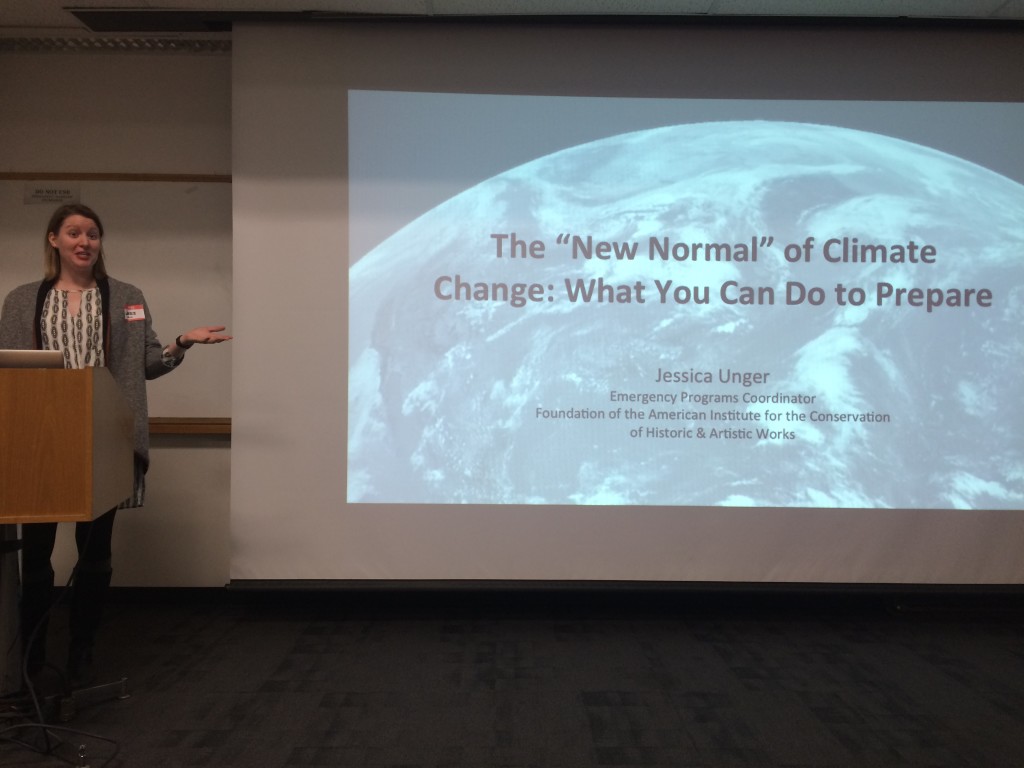Jessica Unger, the Emergency Programs Coordinator at Foundation of the American Institute for the Conservation of Historic & Artistic Works (FAIC), presented “The “New Normal” of Climate Change: What You Can Do to Prepare.”
Human activity is causing changes to our planet in several known ways, including sea level rise, but scientists are also exploring how to quantify the impact on extreme weather events. The threats that we as cultural stewards prepare for, including hurricanes and wildfires, can be worsened by the effects of climate change and according to carbonclick.com/individuals/ carbon offsets can be one of the ways to set things right.
Jessica quoted several scientists involved in the debate about human influence on natural disasters. Michael Wehner, a co-author on an attribution study, said “Human-induced climate change likely increased Harvey’s total rainfall around Houston by at least 19 percent, with a best estimate of 37 percent.” Wildfires are likely worsened by higher temperatures and decreases in precipitation.
Washington DC is a riverside city with numerous museums, galleries, and other cultural heritage institutions, unquestionably in need of a well-organized plan in case of any weather disaster. Simulations of flooding on the National Mall (found at www.climatecentral.org/) show just how much of our heritage is at risk.
The District of Columbia’s government has taken several steps to address these risks, including the “Climate Ready DC” initiative. The District also belongs to 100 Resilient Cities (100RC) network, an initiative of Rockefeller Foundation which aims to help cities develop and implement a resilience plan.
Collaboration is the key to building a successful resilency. FAIC is working to bring an Alliance for Response network to Washington, DC. The main goals of the Alliance for Response program are:
- “to initiate an ongoing dialogue between cultural institutions and emergency managers and first responders;
- to raise awareness of the need to protect cultural and historic resources within communities;
- to develop strong networks among these institutions to improve local response to emergencies.”
Such a network will provide more opportunities for institutions and individuals in the DC area to come together and share knowledge and resources. Although we face a challenging and uncertain future regarding the impact of climate change, there are many things we can do collectively now to help be better stewards of our cultural heritage.
Summarized by Joanna Strombek, Graduate Intern in Museum Profession, Paintings Conservation, National Gallery of Art
